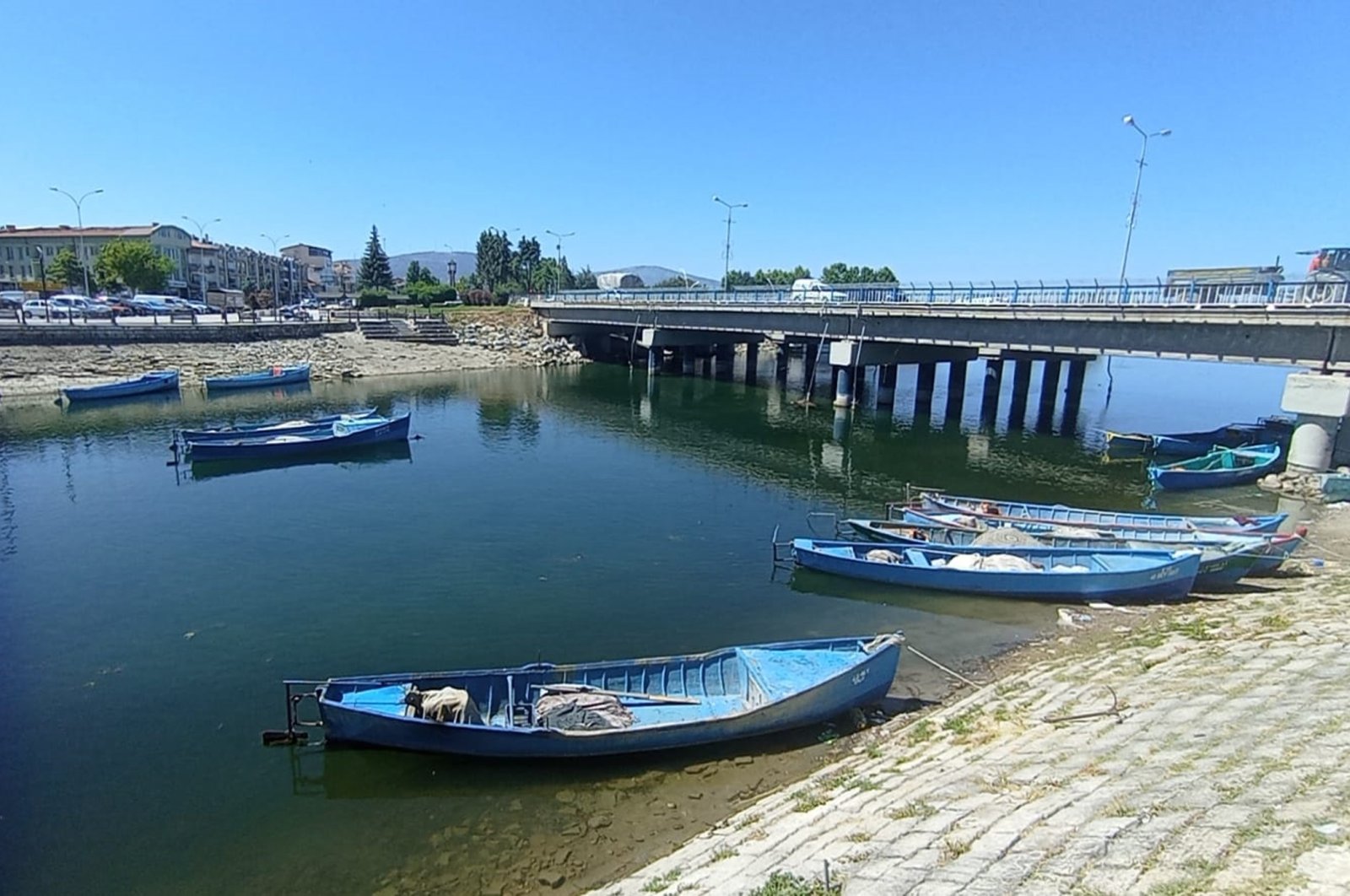
Water levels in two of Türkiye's largest natural freshwater lakes have dropped below critical levels, exacerbated due to effects of climate change, excessive and uncontrolled agricultural irrigation, and high temperatures, an expert said Thursday.
According to Erol Kesici, the scientific advisor of the Turkish Association for the Conservation of Nature (TTKD), the water level in Lake Eğirdir, situated some 107 kilometers (66 miles) north of Antalya, decreased by 11 centimeters (4 inches) below the critical level, and levels in Lake Beyşehir between the provinces of Konya and Isparta has dropped 14 centimeters below critical.
Kesici highlighted that despite the enactment of various laws and regulations for the conservation of these lakes, which are strategically important and are considered fresh and utility water sources, excessive water usage has led to a continuous decrease in levels.
In an interview with Demirören News Agency (DHA), he further pointed out that due to the decreased water levels, measurement instruments owned by State Hydraulic Works (DSI) in Eğirdir have been rendered inoperable at certain locations.
He also explained that critical water levels for Lake Eğirdir and Lake Beyşehir were determined as 914.74 meters (3,001 feet) and 1,120.40 meters, respectively, according to special provisions introduced in recent years. He noted that these lakes have their own specific laws stating that no water can be drawn if critical water levels are breached.
Kesici expressed concern about the severe consequences arising from this situation and the arid climate, especially for agricultural production in the region. He mentioned that fruit gardeners, farmers and livestock owners are facing challenges as their water needs continue to rise while available water decreases.
"As we have been saying for years in the region, although the climate is arid in Beyşehir and its surroundings, irrigated agriculture is still carried out. Incentives that cause an increase in sunflower production in Isparta by 50%, production such as beet and forage crops, and the overall need for water has increased; and many farmers are unable to get water today. The resistance to diseases has gradually decreased," he said.
Kesici highlighted the significant risks associated with decreased water levels, particularly the potential danger of bottom waters falling below critical levels.
"The low water levels are both dangerous for health and cause excessive evaporation. In Eğirdir and Beyşehir, there is a recession of almost 1-2 centimeters every day. Severe evaporation is the result of a decrease in the water level. As the water levels recede, evaporation increases and the resulting conditions can lead to reduced oxygen levels, elevated bacterial concentrations and algal proliferation," he explained.
He advocated reevaluating the region's agricultural practices and water management methods based on scientific approaches rather than populist strategies.
He called for rainwater harvesting, efficient water transport methods and implementation of water purification systems for reuse, as well as a comprehensive and responsible approach to water resource management.
